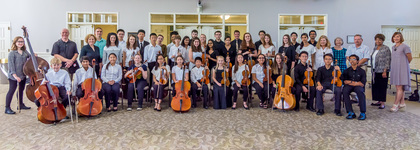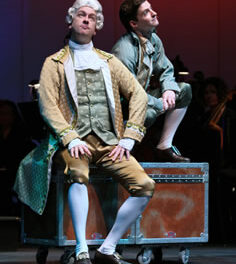This year, my inner experience of the Martin Luther King Jr. Holiday was poignant and difficult. Throughout the day, I felt vacillations of frustration and anger, then humility, awe, and thankfulness, only to be overtaken by a gut feeling of dread.
A large part of King’s legacy has to do with his successful fight to win the right to vote for people of color. This right was fully implemented in 1966, and he was killed two years later. Then began another fight to acknowledge and honor King’s contribution by attributing a day of service, but this was not fully recognized by all of the States until 2000 – just 22 years ago. And now here we are, witnessing voting rights being stripped away left and right. On this eve, it is almost certain that the Freedom to Vote Act and the John Lewis Voting Rights Advancement Act, bills meant to combat voter restrictions that many state legislatures have put into place in recent months, will not be passed by the US Senate. (By the time of the publishing of this article, the bills have been struck down.)
And so, I found myself at Church of the Nativity in North Raleigh for a concert of music to celebrate the life and legacy of King, who would have been 92 years old today. This event could easily have been charged with the undercurrent of the present circumstances, but it was not. No politics and no obvious concerns were present in the small but supportive crowd. There was only excitement to hear some absolutely wonderful music, performed by top-flight players from the North Carolina Chamber Music Institute (NCCMI).
The concert was entitled Chamber Music Treasures: Music by Black Composers in Honor of Martin Luther King, Jr., and featured faculty and students of NCCMI. Chamber Music Treasures is a series that has occurred for three consecutive years (last year was an online offering) – and treasures they were! The program was expertly curated by one of the foremost scholars on historic and contemporary Black composers today, Dr. Timothy Holley. The program notes, also penned by Holley, were copiously thorough and fully compelling.
For those unfamiliar with NCCMI, some background: NCCMI is an “exciting program which provides Triangle area music students the opportunity to enrich their playing and learning experiences through small group ensembles. The advanced study of chamber music is achieved through coaching sessions by area professionals – including North Carolina Symphony members and university professors – student-led rehearsals, public performances, master classes, and workshops. It is open to musicians who play bowed string instruments, woodwind instruments (including French horn), or piano.” This year NCCMI is working with 91 students with full capacity during Covid, and has provided a wonderful outlet for young musicians.
Founding member Elizabeth Beilman welcomed the audience members, who were masked and socially distanced due to the latest coronavirus variant, Omicron. Unfortunately, United Strings of Color had to be cut from the program due to Covid exposure. This organization was formed in 2018 by Margaret Partridge of the Philharmonic Association, who gathered a group of Black families with children in a local youth orchestra and formed a group addressing racial disparity in classical music. We hope to hear a recording of their planned piece, “Sidelines: (Reflections on Sports for String Quartet)” by Duke University Composer-in-Residence, Anthony M. Kelley, when the upcoming release of NCCMI’s YouTube stream becomes live on January 26.
The program began with “Pastorale” by the distinguished music educator David N. Baker (1931-2016), who is known for his help in building up the famed jazz program at Indiana University’s Jacobs School of Music. Baker’s “Pastorale” was written in 1959, and was later incorporated into his cantata Black America (1968). Written just five years after Brown v. Board of Education, it was composed in honor of Dr. King, who was still alive at the time of its creation.
The faculty quartet, Alice Ju and Greg Logan (violins), violist Jacobus Hermsen, and cellist Holley, presented a warm, rich tone from the start. While it felt a bit slow with occasional slips in intonation, the quartet played with tenderness and sensitivity.
Another treasure, Raleigh’s longstanding soprano-of-note, Waltye Rasulala (founding member of NCCMI and current board chair), sang two spiritual settings by Florence Price (1887-1953). “You Won’t Find a Man Like Jesus” and “Go Down, Moses” gave us a chance to hear the wonderfully sweet balance of Nativity’s Schimmel piano, played by Olga Kleiankina. Rasulala performed with her usual grace and emotional depth, and the ensemble between pianist and singer was tender and lovely.
The prolific composer Joseph Bologne, Chevalier de Saint-Georges (1745-1799) is the first known Classical composer of African ancestry. De Saint-Georges was born in the French colony of Guadeloupe and fought his own battle with racism in pre-revolutionary France. So passionate was he about the ideas of liberté, égalité, and fraternité that he joined the Revolutionary Army and wrote music in his time off! His string quartet Quatuor by was performed by Ju, Hermsen, Tristen Johnson (cello) and Kleiankina. In two movements, this piece fits solidly within the standard Classical repertoire of the period. Vibrant and full of life, the quartet played the two brisk movements beautifully. After hearing this reading, I wanted to hear more of de Saint-Georges.
Next was Adolphus Hailstork‘s (b. 1941) stunning “Elegy” as played by cellist Johnson and pianist Kleiankina. Hailstork is a composer of much acclaim, a prolific writer, and professor of music and eminent scholar at Old Dominion University. As for the performance of “Elegy,” the ensemble between pianist and cellist was excellent. This piece requires a lot in terms of depth of emotion, and Johnson is one to watch! This high school junior displayed excellent control and emotional maturity beyond his years. Johnson was chosen in 2021 to play in the National Youth Orchestra of the United States of America by Carnegie Hall. He will definitely go on to do great things!
By far, the most difficult and interesting piece for this listener was “Strum” by Jessie Montgomery (b. 1981). The WCPE String Quartet is made up of top-notch students – Jaeyee Jung and Sophia Lui (violins), Lauren Southwell (viola), and Catherine Yates (cello) – who confidently lit into the challenging piece with gusto. Excellent and near perfect ensemble was displayed. The players’ energy was infectious, and the audience cheered at the fiery finish. These young women work so well together that they should take their performance on the road! Brava to this ensemble and to their coaches, Beilman and Rebekah Binford.
The faculty quartet came back to play “Lyric for Strings” by George Walker (1922-2018) and “Cumbia y Congo” from Danzas de Panama by William Grant Still (1895-1978). The Pulitzer Prize winning (Lilacs 1996) Walker was so proficient that he graduated from Oberlin at the age of 18! Walker’s work sounds purely American to these ears, but there are beginning nods to what was to come with Pärt and Barber. The piece is profound, and I encourage you to hear it. The faculty quartet really shone on this piece and it was clear that they were moved by and committed to it. Their reading of the Still piece was brilliant.
Holley completed the evening in a most profound and appropriate way. Bringing all the musicians back onstage, he included the audience in the singing of the Black National Anthem, ”Lift Every Voice and Sing.” It’s not the easiest tune (as Holley warned), so the musicians played it through once for us to hear. I was glad to find it in the hymnal in front of me. We all need to learn it!
Credit must be given to Nathaniel Yaffe, who maneuvered quickly and efficiently throughout with audio and video to capture the concert. As this was the only MLK celebration in the CVNC calendar this month, I felt honored to be able to attend it, and am thankful for the time, energy, effort, and care that went into the programming and playing of this concert. NCCMI is doing important work in our community.
Thankfully, I came away feeling more confident that music can help “overcome” through its power to transform. As Dr. King said, “Music is the best consolation for a despaired man.”
Tune in to have a listen and support this organization on January 26 on their YouTube channel, where this concert will be played again. Hopefully, the United Strings of Color will also have a recording of “Sidelines” at that time to share. Fingers crossed that you’ll also be able to enjoy Holley’s program notes online along with the stream!
Update: Here’s the link to view the full video with United Strings of Color! https://www.youtube.com/watch?v=RNyAQMgNQyU&t=6s












